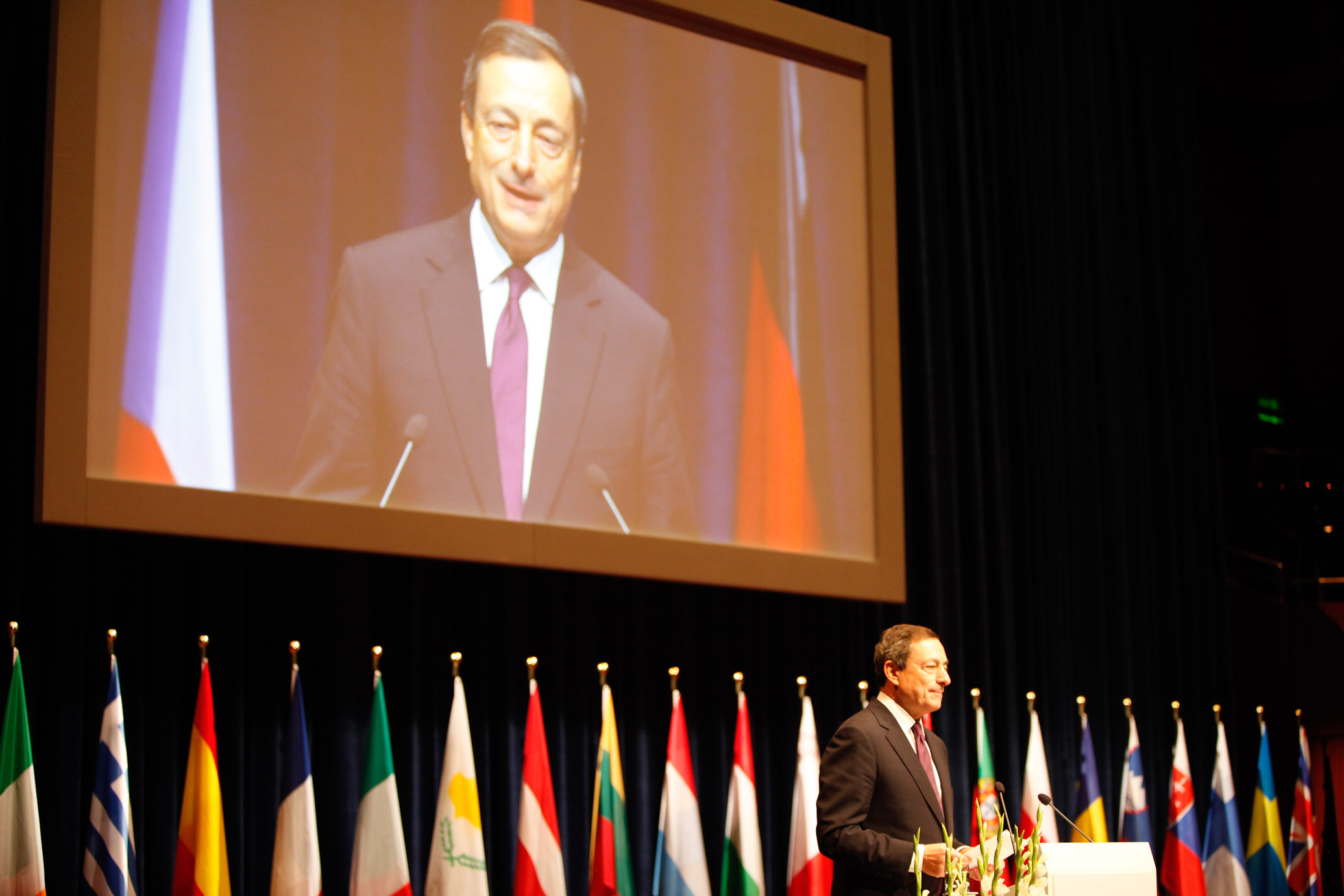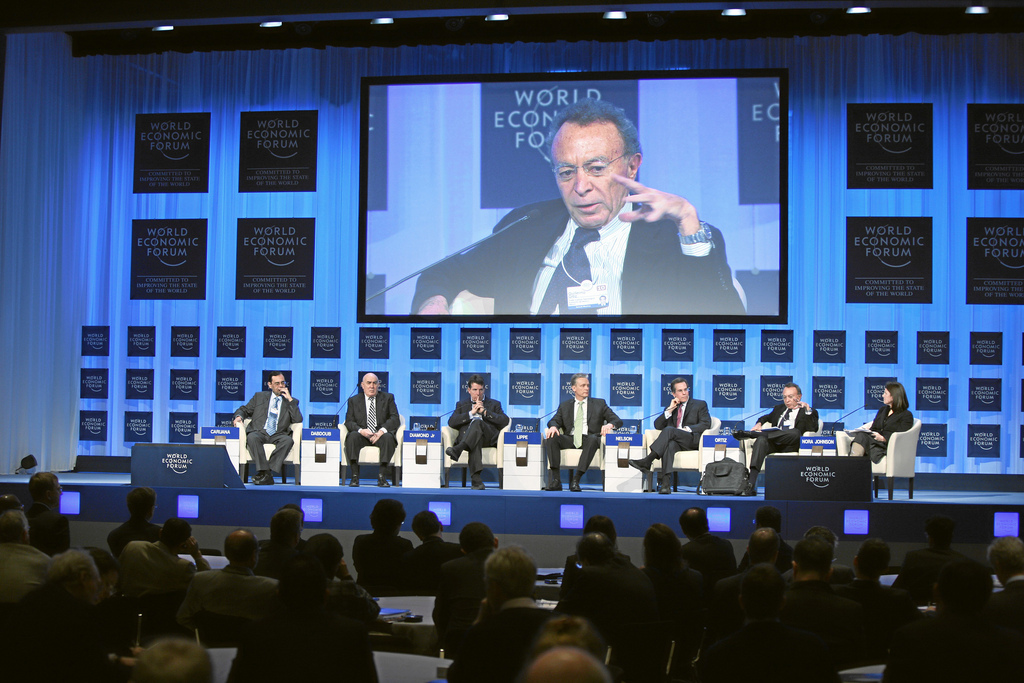
In the first part of this exposé, I examined the origins and recent history of the Group of Thirty as a highly influential institution in the arena of global financial governance, bringing together top central bankers, financiers, policymakers and academics in the world of economic and monetary affairs.
More than three decades since it was founded in 1978, the Group of Thirty has maintained its reputation as a prominent institution in the financial world, continuing to produce influential reports and advocate for policies which are largely accepted and implemented across the globe.
The G30, as it is often referred to, describes itself as “a private, nonprofit, international body composed of very senior representatives of the private and public sectors and academia” which “aims to deepen understanding of international economic and financial issues, to explore the international repercussions of decisions taken in the public and private sectors, and to examine the choices available to market practitioners and policymakers.”
In her dissertation on global financial governance, Eleni Tsingou, Assistant Professor at the Department of Business and Politics at the Copenhagen Business School, focused on the role of the Group of Thirty in shaping the global financial system, noting that the G-30 “has had an important impact on financial regulatory and supervisory practices both at the national and global levels...in a way that was consistent with private sector interests.”
She noted, “the G-30 has contributed to the emergence of a mix of public and private authority in global finance and has considerably strengthened the role of private interests in the functions of regulation and supervision.”
By the late 1990s, the G30 had played a central role in the governance of the global financial system – with a very direct role in managing the clearance and settlement of securities and over-the-counter (OTC) derivatives – ultimately directing the course of the debate and the resulting policies of regulation (or lack thereof). The Group of Thirty had thus “found itself in a privileged position at the centre of the financial policy arena.”
The Group went on to have a significant influence on the type of banking regulation set forth through the Basel II process of the Basel Committee on Banking Supervision, run out of the Bank for International Settlements. More specifically, the G-30 was a strong promoter of “self-regulation” and “self-supervision” of the financial markets, or, in other words, granting the banks the authority to "regulate" themselves, which obviously led to disastrous consequences.
G30 Report: Long-Term Finance and Economic Growth
In 2012, the G30 published a report compiled by the Working Group on Long-term Finance, which was composed of nearly two-thirds of the membership of the G30 and which set out their concerns about “the efficient provision of a level of long-term finance sufficient to support expected sustainable economic growth in advanced and emerging economies.” The report aimed to estimate “future financing needs” and to “identify the barriers” which would get in the way of supporting “long-term growth” for the economy.
The report noted directly that it was not an “abstract exercise,” but was “operational,” complete with “practical recommendations for global and national actors and policy makers that would...help create a system of long-term finance.” In other words, for the Group of Thirty, they don’t produce mere "recommendations," but rather "instructions" which they expect to be followed. It is of significance that many of those who produced the report and who are members of the G30 conveniently hold an official position so as to be able to dutifully implement those instructions.
The report noted some “ideal candidates” to manage long-term financing, such as pension funds, sovereign wealth funds, insurance companies, endowments and foundations. By the end of 2010, these institutions had roughly $57 trillion in assets, a number which the G30 predicted would increase by $3 trillion per year until 2020.
Noting that the world’s major economies would be continuing to undergo austerity measures – or "fiscal consolidation" programs – over the “medium-term,” the ability of governments to make investments would be heavily restrained. Thus, “the private sector will need to be mobilized to fill the gap.” In other words, so-called "public-private partnerships" become the route to go, to ensure that corporations and banks reap massive profits, subsidized by governments.
The G30 report made the claim that “open markets help support sustainable economic growth,” and then recommended that emerging market economies follow the major industrial nations down the same path that helped create the global financial crisis by suggesting that they “gradually move toward liberalization of capital accounts,” to allow money to flow in (and out) of countries with more ease and less regulation (if any).
What makes the G30, and its recommendations, so important is not only the fact that they are taken seriously by policymakers and market "participants" – but that the very individuals making the recommendations are in positions of power to directly implement or support those same recommendations. Here are a few of those individuals worth noting:
Mark Carney is a member of the Group of Thirty, while also sitting as the Governor of the Bank of England (a position he took up in 2013), prior to which he was the Governor of the Bank of Canada from 2008 to 2013. Since 2011, Carney is Chairman of the Financial Stability Board (FSB), run out of the Bank for International Settlements (BIS). He is the former Chairman of the Committee on the Global Financial System at the BIS from 2010 to 2012; the first Vice Chair of the European Systemic Risk Board; a member of the board of directors for the BIS; a member of the Foundation Board of the World Economic Forum, and a participant at Bilderberg Meetings. Previously Carney was a former Deputy Finance Minister in Canada from 2004 to 2008, and a deputy governor of the Bank of Canada from 2003 to 2004, prior to which he worked for Goldman Sachs as an executive for several years.
Jaime Caruana is also a member of the Group of Thirty while sitting as the General Manager of the Bank for International Settlements (BIS) from 2009 to the present. A member of the Financial Stability Board (FSB) from 2009 to the present, Caruana is also a member of the Group of Trustees of the Principles for the international banking lobby group, the Institute of International Finance (IIF). Previously, Caurana served as the Financial Counselor to the Managing Director of the IMF and as the Governor of the Bank of Spain from 2000 to 2006, where he helped create the Spanish housing bubble that led to Spain’s current crisis. He also sat on the Governing Council of the European Central bank from 2000 to 2006 and was a member of the Financial Stability Forum (FSF) from 2003 to 2009 (at which time it was formed into the FSB), in addition to being former Chairman of the Basel Committee on Banking Supervision from 2003 to 2006.
Mario Draghi is a member of the Group of Thirty while acting as current President of the European Central Bank from 2011 to the present, as well as being on the board of the BIS from 2006 to the present and serving as Chairman of the Group of Governors and Heads of Supervision (GHOS) at the BIS from 2013 to the present. Draghi was formerly the Governor of the Bank of Italy, from 2006 to 2011, where he helped put in place the conditions that led to Italy’s current economic and financial crisis. He was a former chairman of the Financial Stability Board from 2009 to 2011; former chairman of the Financial Stability Forum from 2006 to 2009; and a former member of the board of governors of the International Bank for Reconstruction and Development (IBRD) and the Asian Development Bank (ADB). Draghi was additionally a former Honorary Trustee at the Brookings Institution from 2003 to 2013; a former Director General at the Italian Treasury from 1991 to 2001; chairman of the Italian Committee for Privatizations from 1993 to 2001; former Executive Director at the World Bank from 1984 to 1990; and he served as Vice Chairman and Managing Director for Goldman Sachs International from 2002 to 2005.
A European non-profit organization that documents – and opposes – the influence of corporations on E.U. policy, the Corporate Europe Observatory had filed a complaint with the E.U. that Mario Draghi’s membership in the Group of Thirty represented a conflict of interest as it brought him into an institutional relationship with several representatives of large banks, many of which received financial support from the ECB. In early 2013, the E.U. stated that Draghi’s membership in the G30 did not undermine his “independence” as head of the European Central Bank, since the G30 “should be characterized as a discussion forum, rather than an interest group or lobby seeking to promote private interests.”
Paul Krugman of the New York Times came to the defense of Draghi, while noting that he himself was a member of the Group of Thirty. Krugman wrote on his blog, “It’s a talk shop; I value it because I get a chance to hear what people like Trichet and Draghi have to say in an informal setting.”
These are, of course, not the only major officials who are members of the Group of Thirty within the central banking world, but three among several members. The next part in this series will examine some of the other members of the Group of Thirty and the contributions they have made in the past to creating the global economic and financial crisis, and the current roles they play as members of the G30.
Andrew Gavin Marshall is a 26-year old researcher and writer based in Montreal, Canada. He is Project Manager of The People’s Book Project, chair of the Geopolitics Division of The Hampton Institute, research director for Occupy.com’s Global Power Project and the World of Resistance (WoR) Report, and hosts a weekly podcast show with BoilingFrogsPost.
3 WAYS TO SHOW YOUR SUPPORT
- Log in to post comments



















